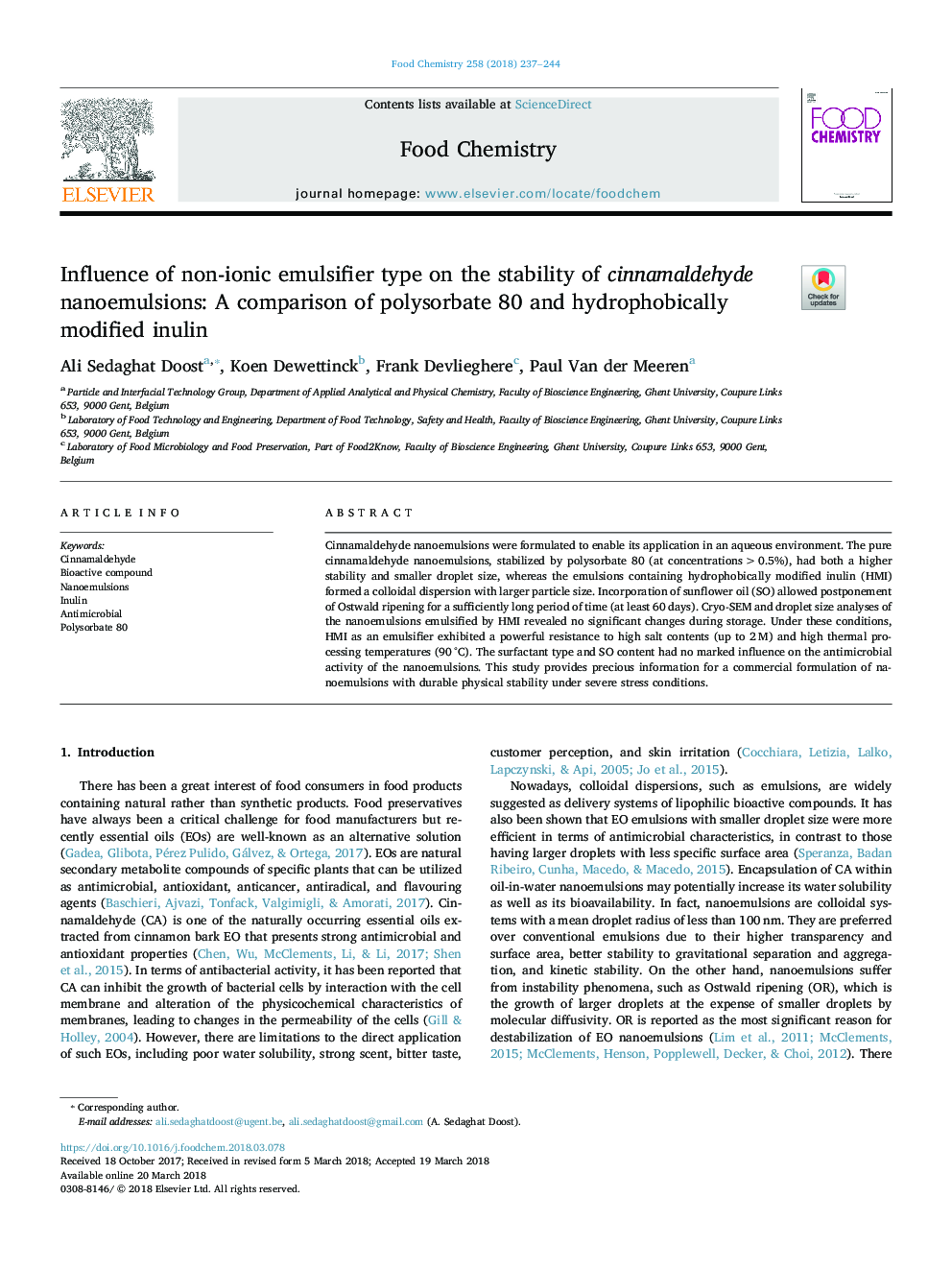| Article ID | Journal | Published Year | Pages | File Type |
|---|---|---|---|---|
| 7585188 | Food Chemistry | 2018 | 8 Pages |
Abstract
Cinnamaldehyde nanoemulsions were formulated to enable its application in an aqueous environment. The pure cinnamaldehyde nanoemulsions, stabilized by polysorbate 80 (at concentrations >0.5%), had both a higher stability and smaller droplet size, whereas the emulsions containing hydrophobically modified inulin (HMI) formed a colloidal dispersion with larger particle size. Incorporation of sunflower oil (SO) allowed postponement of Ostwald ripening for a sufficiently long period of time (at least 60â¯days). Cryo-SEM and droplet size analyses of the nanoemulsions emulsified by HMI revealed no significant changes during storage. Under these conditions, HMI as an emulsifier exhibited a powerful resistance to high salt contents (up to 2â¯M) and high thermal processing temperatures (90â¯Â°C). The surfactant type and SO content had no marked influence on the antimicrobial activity of the nanoemulsions. This study provides precious information for a commercial formulation of nanoemulsions with durable physical stability under severe stress conditions.
Related Topics
Physical Sciences and Engineering
Chemistry
Analytical Chemistry
Authors
Ali Sedaghat Doost, Koen Dewettinck, Frank Devlieghere, Paul Van der Meeren,
